Train to Claim Your Power
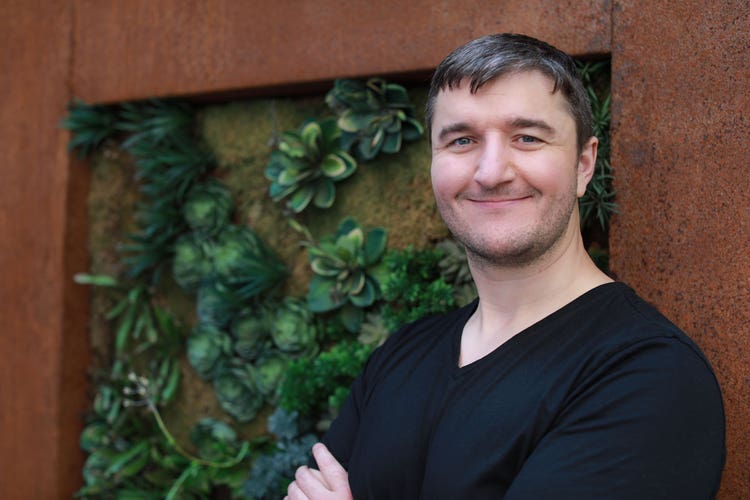
“SuperSoul Sunday” alum Mastin Kipp takes on what’s blocking your momentum.
Mastin Kipp has a fresh view of personal development—and it’s a practical one. While many leading thinkers have focused on momentum (get to your goals faster!), Kipp is a No. 1 best-selling author and the creator of Functional Life Coaching™—and it’s all about clearing impediments. Just as physical training leads to strength through a cycle of muscle tissue trauma and repair, we can take psychological and emotional traumas and build strength to clear what blocks our progress.
It’s not a question of “aha” moments, Kipp says. “Most people wake up the next morning, and they think, ‘What was that thing I read yesterday? I can’t really remember,’ and then the drama continues of being distracted in the everyday life.” Instead, Kipp observes, it’s microtraumas that can lead to growth. “It tends to take a bunch of series of bottoms where you’re not acting on it for you to get the message,” he explains.
Sometimes we don’t act on those messages that come over and over because, subconsciously, we believe that change is a threat—that literally, it will put us in danger. Which is why, Kipp observes, some people subsist in low-level pain their entire lives without realizing it.
In his new book “Claim Your Power” (Hay House, 2017), already no. 1 on Amazon’s list of new releases for Self-Esteem, Kipp lays out a 40-day plan and the anatomy of transformation. Five elements compose the anatomy of transformation: your behavior that you’d like to change; the story you tell yourself about your behavior; your emotional response underpinning that behavior and story; the meaning you’ve assigned to the event or circumstances prompting your emotional response; and the root cause that prompts you to assign that meaning. Ultimately, this process leads you to your true purpose: the constant that anchors a meaningful life, amid shifting circumstances and changing goals.
From physical fitness to emotional fitness
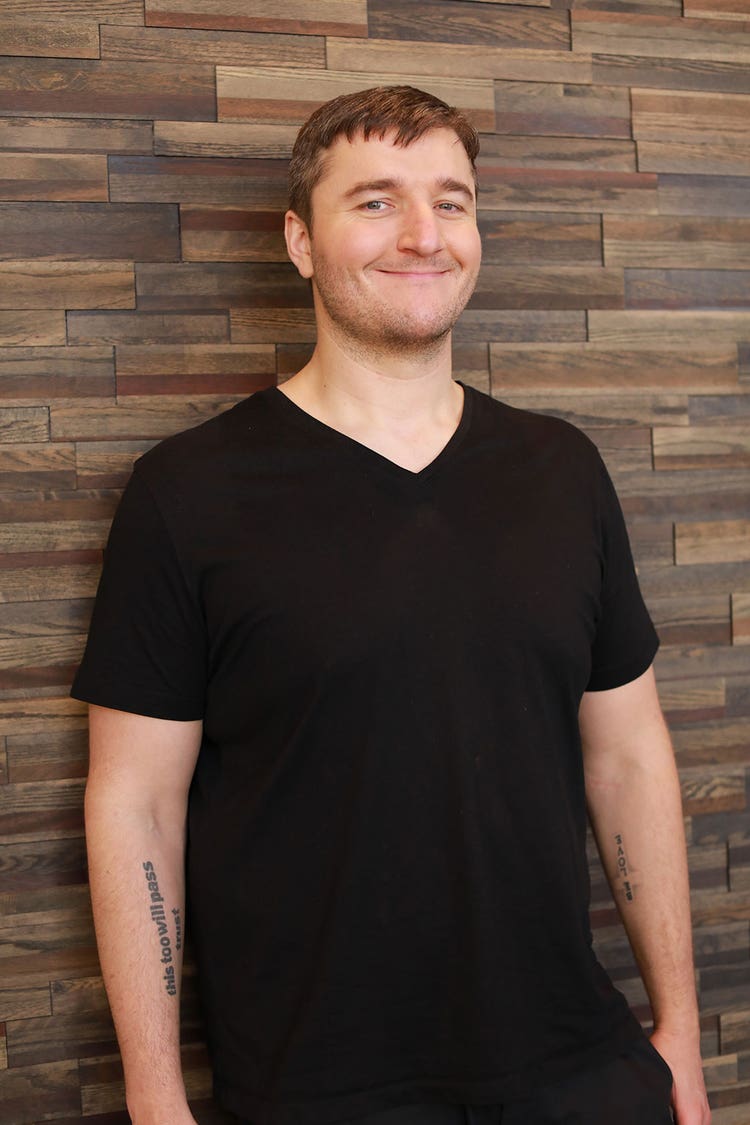
We know there’s a close connection between the gym and our view of ourselves, and Kipp gets right to the point. “Maybe you’re at the gym because last night you made a deal with yourself: ‘I’m going to have two pizzas and then I’m going to run it off today.’ Well, what was the root cause that was driving you to do that? Functional life coaching helps you quickly figure out why and help you resolve the blocks holding you back mentally and emotionally so that you can accelerate your results,” Kipp explains.
This is where Kipp’s concept of emotional fitness comes into play. “We need emotional fitness, where we can actually experience emotions and not run,” he says. Heads-up, guys: “You ask most men how they feel and they say ‘good.’ But look at the most ripped dude in the gym, [and consider] that guy’s channeling his emotion into that body, and he’s linked his emotions with eating chicken breast and rice and no carbs at night.”
But here’s how to build emotional fitness from physical fitness. “Look at how you build muscle through microtraumas: I tear the muscle apart and it heals,” Kipp says. That’s also true, emotionally. “You have microtraumas in your life. I have worked with people who have been in some of the worst scenarios in the world, and what they’ve been through is significant, but what’s more significant is how they respond to it. If you see it in the same mindset or context as growing muscle, it’s how you grow emotionally fit and resilient.” It’s also how you build the ability to recognize obstacles that come from within and build the strength to clear them.
Pain is not a prerequisite
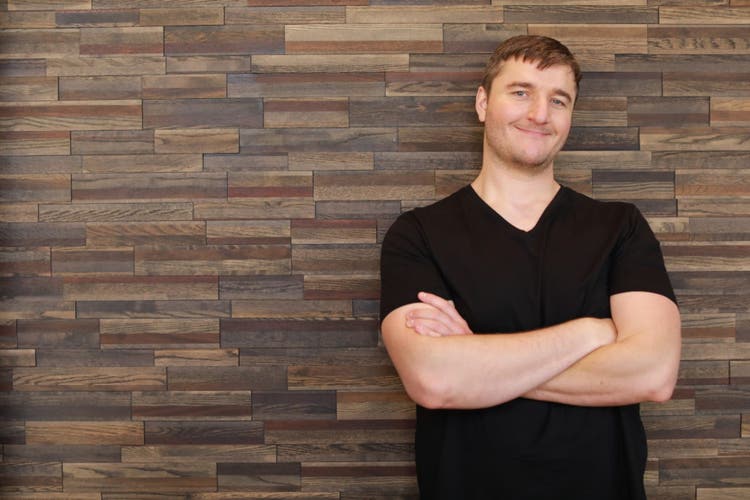
Kipp’s approach has earned the endorsement of thought-leaders including Dr. Aviva Romm, the Yale-trained MD and thought leader in integrative medicine. “As straightforward as it sounds, surprisingly,” Kipp says, “this mindset hasn’t yet influenced the coaching conversation. One major reason is that changing your life that fast is really scary. So a lot of people will pick mentors and coaches or therapists who they tell the same story over and over and over again just to stay the same and to have some connection.”
That’s not what interests Kipp. And his functional approach to growth already has a track record of success in—of all places—the tech industry. “In the tech industry, people have figured out if they remove impediments, they can go faster,” he says. The underpinning principle has been codified as “agile” project management for software development, with an individual (scrum master) responsible for the practices that remove obstacles.
His focus on removing impediments also helps save the energy that we otherwise might spend beating ourselves up for not making progress. “The reason why you’re stuck is not because you’re bad,” Kipp explains. “It’s not because you’re not loved by your creator or life or however you want to look at your spiritual philosophy. It’s just because there’s a belief or meaning that you have that you created in the past that was designed to keep you safe.”
What we’re often afraid of is the emotions that come with change, Kipp says. For example, the fear associated with ending a relationship might not be about being alone; after all, we’re capable of taking care of ourselves. He says more likely it’s our fear of feeling negative emotions—terror, shame, guilt, rage, sadness or powerlessness—and proposes an internal dialogue that shifts from judgment to observation: “’This is how I’ve been surviving up until now. And now I’m going to learn something different.’ And then you actually move forward.”
Once we decide to see what’s blocking us, Kipp says the job is to see everything that happens as an answer to that question rather than asking for answers to present themselves in a way that we need or want them to show up. (He laughs and says, “That’s sort of the height of arrogance, telling the universe how to operate.”)
Power comes from “Daily Love”
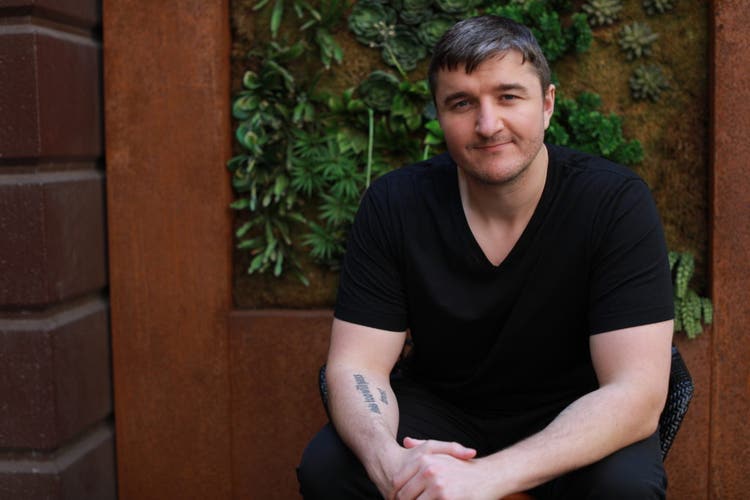
Kipp’s journey to health began at his own rock bottom. Kipp dropped out of college for his dream job at a record label, and just when his star should have been rising as a high-powered vice president, the lifestyle caught up with him. He landed, jobless, in his ex-girlfriend’s parents’ pool house (and a case of gout, to add insult to injury).
That’s where the real work began, including quitting drugs and finding healthier behaviors. So Kipp did what he calls his “learning out loud”—that is, sharing insights without the presumption of perfection—via Twitter. His Daily Love feed captured friends’ attention, and then a few more—and then Kim Kardashian advised her millions of fans that Kipp’s account was a must-read (and follow).
His awareness of his own imperfections has led to a practical perspective of personal development. Kipp still considers himself to be learning out loud, and probably always will. “I’ve found a lot of times that there is an expectation of perfection, which produces a sort of co-dependent relationship with that person. I’ve never been a fan of that,” he says. Preacher or teacher, that person is just “a dude who has a wife, and kids, and he has problems.” The sermon or lesson is as much for himself as it is for the class or congregation.
The responsibility for change is shared. “What I care about is that I stay in integrity with what I know to be true and that I bring the best stuff forward. What someone does with it is 100 percent up to them,” Kipp says. “If I was trying to live a career where I cared what other people thought about me, I could not be a teacher. The reason why I’m able to do what I do is because my clients are so courageous. They’re the ones who are getting the results. They’re the ones who are spreading the word.”
Redefining purpose
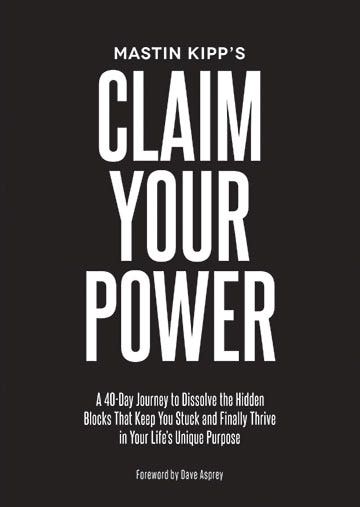
Kipp’s first book, “Daily Love: Growing Into Grace”(Hay House, 2014), grew out of the first part of his journey. He was captivated by the early days of the journey toward personal development for the likes of thought leaders Tony Robbins and Eckhart Tolle. “I was always really fascinated by those moments in these teachers’ lives, not just what they’ve become,” he says.
Nobody saw the work they were doing in those early days, just as no one saw Kipp’s life in the pool house. “I wanted to do it as sort of a very transparent journey to say, ‘I messed up a lot along the way, and I learned along the way, but here’s sort of a lot of the transgressions and sort of things that I went through that are utterly human,’” he explains.
Kipp says it’s really the story of how he found his purpose. “The top two most important questions you’ll ever ask yourself are ‘What does this mean?’ and then ‘What’s my purpose?’” he says. “The question ‘what does this mean’ is something that you can decide in the moment, and it can become very concrete. The question of purpose is a question that you live.” Most people think their purpose is their job, or being a mother or father, or having a child. “But the problem is, if you lose your job, or if you lose the business, or God forbid, your child dies, then you have no purpose,” he explains.
“We set goals because we want the emotion [that comes with success],” he adds. “Maybe it’s the emotion of acceptance or passion or self-respect. But we’re all pursuing emotions, and we don’t realize it because we’re focused on the external goal.” We don’t ask why, Kipp says. “Think about that. If I pursue something and then I get it, well, it’s short-lived. Or you’ve gone for the goal, not gotten it, and beat yourself up. So either way, you find yourself wanting.”
Once we become aware of how we want to feel, we realize that’s the real target. The process Kipp presents in “Claim Your Power” is designed to help figure out the emotion that each of us seeks. And that leads to purpose: a life in which we each strive to generate that emotion and then share it with others in the form of service. “That can be in a relationship. It could be in a job. It could be in just walking down the street,” he says. “The transference of emotion, that’s the name of the game.”
In contrast to external goals, Kipp observes that this definition of purpose holds constant. “As you grow over time, you have new experiences and different memories, but the internal emotion will almost always be identical,” he says. “This is exciting.”
https://www.youtube.com/watch?v=31u054lnR34
Photo credit: Todd Cribari, inspirostudio.com
Grooming: Chanel